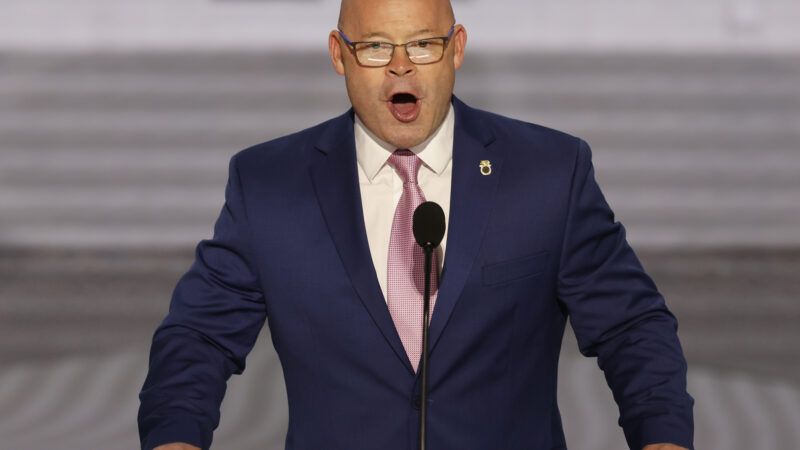Teamsters Boss Sean O'Brien Put Political Spectacle Ahead of His Job
The high-profile fight with UPS didn't improve working conditions as much as O'Brien promised.

With a brash and fiery speech delivered during the first night of the Republican National Convention (RNC), International Brotherhood of Teamsters president Sean O'Brien was supposed to illustrate a political realignment that's turned the Republican Party into the party of unionized working-class Americans.
It might be a clever media strategy for both O'Brien and his new friends in the GOP. But a closer look at O'Brien's biggest accomplishment as head of the Teamsters might make some wonder whether there is much substance behind the union boss' obvious flair for the cameras.
The thing that launched O'Brien into national political prominence was the Teamsters' recent fight with UPS, which employs 350,000 Teamsters to drive its trucks. In a deal struck last June, the Teamsters got UPS to agree to outfit its fleet with air conditioning, heat shields, and fans—the sort of thing that seems like a practical, crucial improvement to the working conditions of union members. In a statement at the time, O'Brien promised that "air conditioning is coming to UPS" and called that concession "a significant step towards a stronger new reality for so many workers and their families."
On Monday night, O'Brien nodded to that win as evidence of his union's strength. "UPS doesn't provide these great wages and benefits out of the kindness of its heart," he said. "UPS does it because the Teamsters fight for it."
The reality, however, looks a bit different. The contract that the Teamsters and UPS signed only requires air conditioning in vans and trucks purchased in 2024 and beyond. In June, CNN reported that UPS has not yet purchased any new trucks that include air conditioning.
As a result, Teamsters members working for UPS are still sweltering on the job this summer—while their boss turned a victory lap into a plum speaking gig at the RNC.
A supporter of O'Brien's might argue that progress in the labor moment is always incremental and that air conditioning only in newly purchased trucks is better than no air conditioning at all. Fair enough.
But if unions were essential to extracting those concessions from employers, why are Amazon's non-union delivery drivers working in fully air-conditioned trucks?
This isn't really a debate over the effectiveness of the Teamsters as a union—even if it is worth mentioning that some members of the union have called O'Brien's much ballyhooed deal with UPS "a weak deal" that left part-time drivers behind in order to score another win that played well in the media: a half-true claim that the average full-time driver will earn more than $170,000 annually. Others (including the union's vice president) are quite unhappy with how O'Brien has snuggled up with Trump and other Republicans.
Really, this ought to raise questions about the effectiveness of unions, period. And that should give pause to the Republicans who have been flirting with the Teamsters and other unions—figures like Sen. Josh Hawley (R–Mo.), whom O'Brien singled out for praise on Monday. Republicans used to understand that there was a distinction between being pro-worker and being pro-union. The former means supporting policies that encourage economic growth and labor mobility, while the latter means letting bosses like O'Brien get applause while the actual working conditions don't improve. It's understandable why most nonunion American workers aren't interested in joining a union these days, and there's a reason why states with lower unionization rates have been more successful at attracting businesses and workers in recent years.
"We are here to say that we are not beholden to anyone or any party," O'Brien said during his remarks to the RNC on Monday night. Good for him. More Americans should feel less committed to blind partisanship—and to the extent that a political realignment breaks up the hold Democratic politicians have had on the voters of union workers, that's all fine and dandy.
But one might also ask whether O'Brien feels beholden to the members of the union he leads or if he's putting political spectacle ahead of doing his actual job.


Show Comments (19)